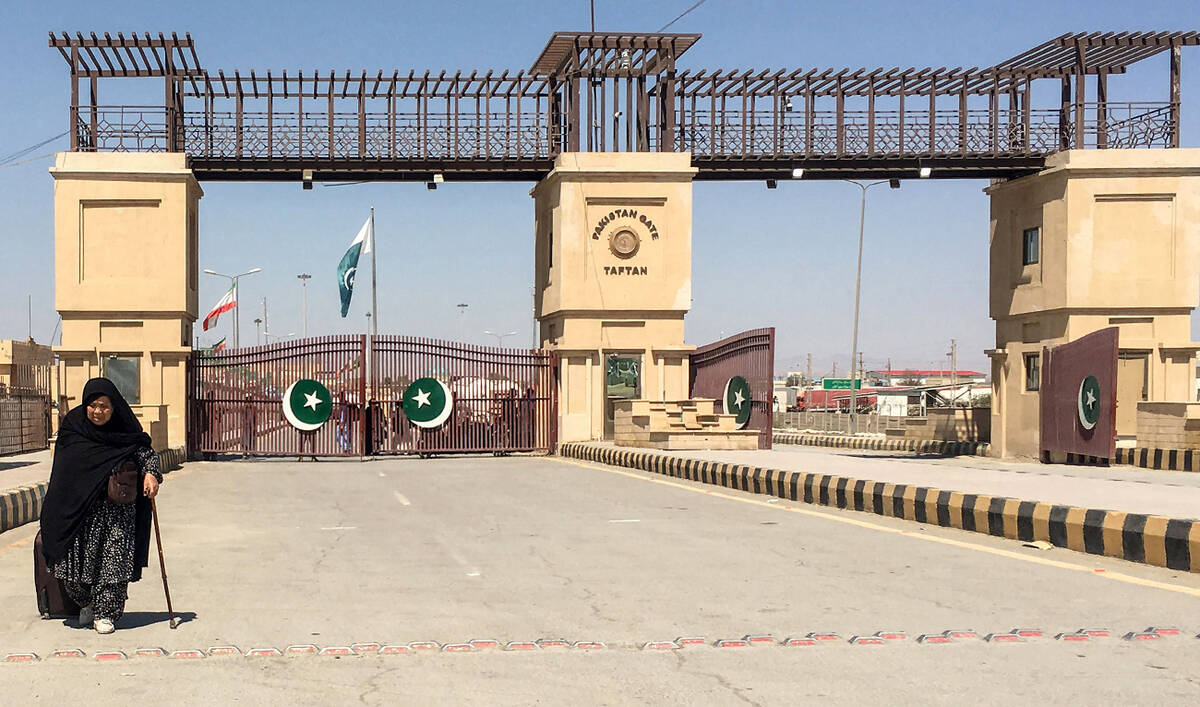QUETTA: Two policemen and four militants were killed in an attack on a police check-post in Pakistan’s southwestern Balochistan province, police officials said Friday.
Balochistan, Pakistan’s largest province in terms of landmass, has been the site of an insurgency for the last two decades, with separatists frequently attacking police, security forces and civilians they see as “outsiders” in the resource-rich region.
In the latest incident, armed men attacked a police check-post in Shaban area, some 35 kilometers away from the provincial capital of Quetta, local police station in-charge Munir Khan told Arab News.
“Terrorists attacked a police post in Shaban, killing two policemen and injuring two others. The police force timely retaliated and killed four terrorists,” he said.
“Search and clearance operation continued till early hours of Friday as some terrorists fled to the nearby mountains.”
No group immediately claimed responsibility for the attack, but suspicion was likely to fall on armed separatist groups who have carried out a number of attacks in a similar fashion in the past.
It comes two days after the outlawed Baloch Liberation Army (BLA) group killed seven passengers, who hailed from the Punjab province, after off-loading them from a bus in Balochistan’s Barkhan district, according to authorities.
Pakistan has been struggling to contain mounting attacks by separatists in Balochistan, which shares a porous border with Iran and Afghanistan.
At least, 25 policemen were killed and 61 others injured in Balochistan in nearly 40 attacks against police in 2024, according to provincial government figures. This is apart from losses incurred by security forces and civilians killed in targeted killings.
The separatists accuse the Pakistani government of exploiting the province’s natural resources for development elsewhere in the country, while neglecting the local population. The government denies the allegations and says it has prioritized Balochistan’s development through investments in health, education and infrastructure projects.
Separately, a man, who was allegedly carrying explosives, was killed in an explosion on Quetta’s Qambrani Road on Thursday night, according to police.
“It has been unclear whether he was a suicide bomber or delivering the explosives,” Qasim Rodeni, a police officer in Quetta, told Arab News.
“The man was carrying around 4-5 kilograms of explosive material which exploded on the road. We are investigating the incident.”
More than 50 people, including security forces, were killed in August last year in a string of assaults in Balochistan that were claimed by the BLA. Last month, dozens of fighters of the separatist outfit wrested control of a small town in Khuzdar from the Levies paramilitary forces. Pakistani authorities had regained the town after hours of efforts.¬Ý
Two cops, four militants killed in attack on police check-post in Pakistan’s southwest
https://arab.news/5zern
Two cops, four militants killed in attack on police check-post in Pakistan’s southwest

- The attack comes two days after gunmen offloaded seven passengers from a Punjab-bound bus and killed them in Balochistan’s Barkhan
- Pakistan has been struggling to contain mounting attacks by separatists in Balochistan, which has been the site of an insurgency for decades
















